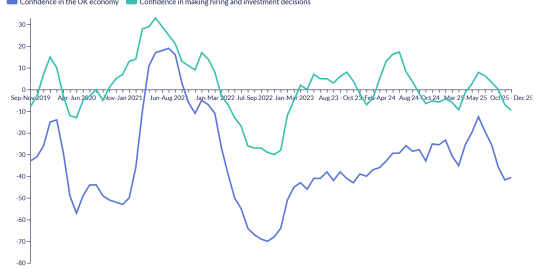ìIf you want to be an effective business leader then get a PA.î
Or so say business leaders themselves in the results of the Annual Business Leaders Survey distributed to over 100,000 executives by Totaljobs.com, the UK's most visited commercial recruitment website.
In this yearís survey, developed with the Association of Personal Assistants (APA), 53% of business leaders concluded that having a PA increased their personal business effectiveness by significantly more than 40%. More than 70% of respondents stated effectiveness is increased by 30% or more by their PA; showing how valuable PAs are viewed by their bosses. With the chance to improve effectiveness by such a vast amount, it would seem PAs are invaluable to a company.
John Salt, Website Director of totaljobs.com said, ìWe are not surprised by this ringing endorsement for the importance of PAs. We recognise it from our own business but also from business using our job board to recruit key staff but the survey also suggests the role of a PA is becoming much more managerial, more complex and diverse. We are seeing increasingly well educated and talented people looking to enter business through this route and then moving into different areas of work and experience.î
In addition, totaljobs have also noted a 15% year on year increase for applications in the PA sector (www.totaljobsbarometer.co.uk).
Dr. Gareth Osborne, Director General of APA, the professional body for the 650,000 PAs (or equivalent roles) in the UK said, ìPAs are now a business critical asset, every organisation should have an assistant in direct support of each of its key executives and for small businesses; where they are all dependent on their owner/manager for direction and management, a PA should definitely be on the shopping list. Looking at the statistics the other way round; if we took away 70% of these PAs then business effectiveness would be reduced by 30% or more in all of these companies.î
Successful entrepreneur and ìDragonís Denî investor Deborah Meaden was unsurprised with business leaders agreeing that having a PA significantly increased their effectiveness. ìA well-organised PA who understands goals and priorities is constantly making decisions on which information and contacts are passed through and what appointments are made,î She said. ìI suspect that bosses who do not believe that having a PA improves their own performance either has the wrong PA or has not yet learnt the benefits of utilising them fully.î
Other key factors from the survey suggest:
ï The essential skills of a PA are exceptional organisational ability combined with outstanding time and communications management. The key personality traits of a PA are confidence and calmness under pressure. Together these suggest a role which is becoming more closely aligned to that of a departmental manager rather than a purely administrative role.
ï PAs are well educated. 70% of PAs are educated to ëAí Level standard or higher and 15% have a Bachelorís Degree.
ï However, education does not continue in the workplace with 46% of PAs receiving no post-educational training for their role.
ï PAs are seen as anchors in the office whilst their boss has meetings elsewhere. Over 46% of PAs do not do any of their work from home. However, 51% spend up to one-fifth of their time working from home.
ï The role of a PA remains incredibly diverse and complex requiring a wide range of skills and the ability to multi-task. Traditional skills like diary management, travel planning and the organisation of meetings remain common to all PAs. Increasingly new skills like project planning, press and PR, staff recruitment and facilities management are being added.
PAs – the power beside the throne

ìIf you want to be an effective business leader then get a PAî




